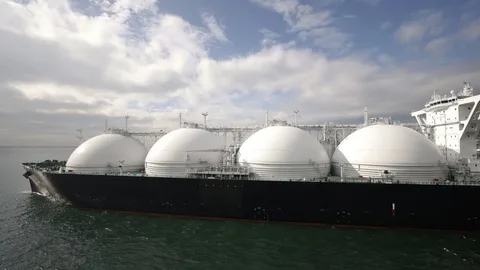This move comes as the administration aims to thoroughly assess the economic, environmental, and national security implications associated with LNG exports during this 15-month pause.
Environmental advocates have expressed concern over the rapid growth of U.S. LNG exports and their impact on global climate change. They have praised the Biden administration for taking a step towards addressing these concerns. On the other hand, critics such as energy companies and members of Congress argue that this decision may jeopardize European energy security and energy jobs within the U.S.
Emily Grubert, an associate professor of sustainable energy policy at the University of Notre Dame and a former official at the U.S. Department of Energy, sheds light on the complex issues that arise when considering large-scale LNG exports. Currently, the U.S. is the largest exporter of LNG in the world. In November 2023, the U.S. achieved record high LNG exports of approximately 390 billion cubic feet.
Since 2017, the U.S. has been a net exporter of LNG, with export volumes now accounting for around 15% of domestic consumption. Although LNG sells at higher prices compared to domestically delivered natural gas, its processing and delivery costs are also higher. As of 2022, the U.S. provided 20% of total global LNG exports. The U.S. Energy Administration predicts that North American LNG export capacity, largely dominated by the U.S., is likely to more than double by the end of 2027. This projection takes into account the construction of five LNG export terminals in the U.S., which are not affected by the current pause.
However, when considering the transition to decarbonization, LNG and natural gas face several challenges. Natural gas is a fossil fuel, and burning it emits carbon dioxide, which contributes to climate change. Additionally, processed natural gas is primarily composed of methane, a potent greenhouse gas itself. Leakage of natural gas from sources such as wells, pipelines, or processing plants further contributes to climate change. Human activities since the mid-1800s, primarily the burning of fossil fuels, have caused a rise in the Earth’s temperature by approximately 2 degrees Fahrenheit (1.1 Celsius) above preindustrial levels. Methane emissions have accounted for around 0.9 degrees F (0.5 C) of this warming.
In light of these concerns, the Biden administration’s decision to assess the impacts of LNG exports aligns with their overall climate goals. By taking a hard look at the economic, environmental, and national security aspects, the administration aims to determine the best path forward regarding LNG exports and their compatibility with efforts to combat climate change.
As the Biden administration’s review unfolds, stakeholders from both sides of the debate will be closely watching the outcome. Ultimately, striking a balance between economic interests, energy security, and environmental sustainability will be crucial as the U.S. evaluates its role in the global LNG market.
Note:
1. Source: Coherent Market Insights, Public sources, Desk research
2. We have leveraged AI tools to mine information and compile it



